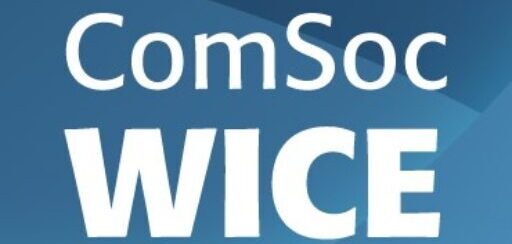First, tell us about yourself, what are you currently working on.
Katie Wilson: Thank you! I’m currently a professor of Electrical and Computer Engineering at Santa Clara University. I will be retiring in a few years so my work is winding down, but currently I’m working a project related to blockage in mmWave with my friend Milica Stojanavic and others.
Tell us what motivated you to start a group dedicated to women in ComSoc.
Katie Wilson: Actually, Heather Yu started Women in Communications Engineering (WICE) back in 2010. I ran into Steve Weinstein at conference where Heather was hosting one of the first panels for WICE and he said come with me to this.
Heather had to step down as chair, for personal reasons, and I was asked to chair the committee in her place in 2011. But it was a very important step that Heather made. Before WICE our interactions with other women communications engineers was informal. Because there were so few of us, we would talk at conferences. I actually met my dear friend, Milica Stojanovic at a women-in-engineering conference in Lund in the late 90’s. But there was no formal organization and I think Heather’s vision was so important. This organization allowed us to make formal and expand the reach of mutual and external support for women in communications engineering.
Are there still gender differences in the communications fields?
Katie Wilson: That’s a loaded question! Is it harder for women to achieve parity in communications engineering? Yes! As a friend of mine pointed out, if you’re not invited to the poker party after work, you may miss out on work gossip, important projects coming down the pike, bonding with your co-workers. Also I think some people still do not take women’s research as seriously as men’s research. In my generation of communications engineers, we did not have many women role models or mentors as they were few and far between. So I benefited from fabulous male mentors, such as John Cioffi, Larry Greenstein and Len Cimini, all winners of the WICE mentorship award. They were mentors to several of us in the field. To go forward we need to support each other but we also need great allies and ComSoc has had some excellent mentors. “In addition I want to give a shout out to the more senior female researchers who are now mentoring the younger generation. These include but are not limited to Andrea Goldsmith, Muriel Medard, Ubli Mitra, Shalinee Kishore, Octavia Dobre and many others.
How do you think women can achieve gender parity?
Katie Wilson: I think women have achieved gender parity in terms of their work, but there are not enough of us. One of the factors is being the only woman in the room. This can be very hard as one feels like there is a big spotlight on you, especially if you ask the wrong question or give the wrong answer. Or it’s perceived as the wrong question or answer. I think having colleagues who accept and respect you is key. I have friends and colleagues with whom I can ask technical questions that I still fear are silly. I can engage in this conversation with them because I don’t worry that they will think I’m stupid for asking. Unfortunately, there are folks I still do not feel comfortable engaging with as I have that nagging fear of the big spotlight on me with the silly question.
What are the current opportunities and challenges for women in communications?
Katie Wilson: I think the opportunities for women in communications should be the same as that for non-women in communications. The sky should be the limit.
What has been your most rewarding experience with WICE?
Katie Wilson: I think my most rewarding experience was the two women’s workshops we held in Banff in 2012 and the women’s workshop in Princeton in 2014. The plan was to have a small technical workshop where women could discuss their research and networking could ensue.
How do you think ComSoc has been implicated in gender equity?
Katie Wilson: I think ComSoc is making great efforts for gender equity. There are more women in ComSoc governance and more women in the field now. We are not there yet, but I am hopeful.


